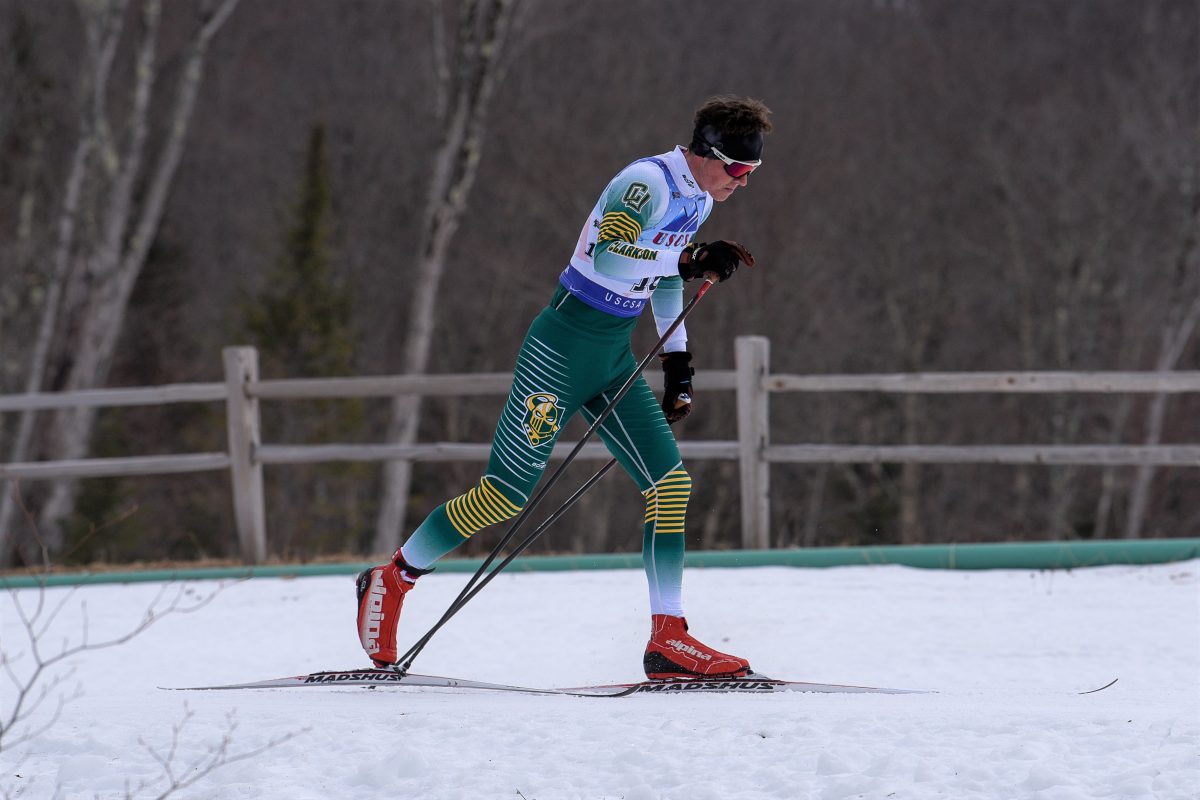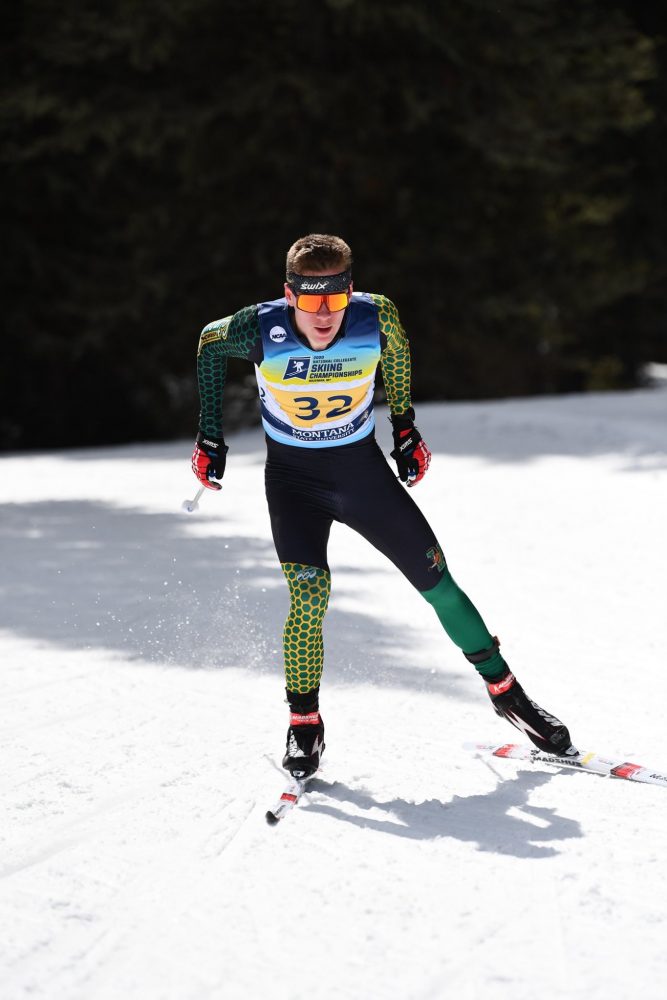
Cross Country Canada’s decision not to host the continent’s first-ever Tour de Ski-style stage race in February, 2012, came despite the recommendation of an independent feasibility study commissioned by the government of Alberta, documents obtained by FasterSkier show.
The study, a preliminary version of which was delivered to Cross Country Canada (CCC), the International Ski Federation (FIS), and other stakeholders in early May, urged the organizations to “immediately proceed” with the planning necessary to host an Alberta-based stage race. But the concept was rejected by CCC’s board of directors later in the month, who cited the financial risks that would have been shouldered by the organization, as well as a compressed time frame.
In the wake of the decision, the study’s author and local organizers have both criticized CCC, which, as the national governing body, has approval or veto power over World Cup races in the country. In an interview, Ken Davies, whose consulting firm conducted the feasibility study, said that the concerns of CCC’s board were contrived. Deadlines were flexible, he said, and the financial risk could have been passed on to local organizing committees.
“As far as I’m concerned, they had no risk,” Davies said. “I don’t think they’re reaching as far as they should reach.”
The Study
The feasibility study, conducted by Davies’ firm Lumina Consulting, was commissioned by the government of Alberta early this year as part of an effort in western Canada to ensure the continued use of the Olympic venues from the 1988 Games in Calgary and the 2010 Games in Vancouver.
While CCC was in no way bound by the conclusions of the study, its directors did cite a draft version in their decision not to host the race. FasterSkier has obtained a copy of the draft report, and a Freedom of Information request is pending with the Alberta government for the full version.
In the study, Lumina examines the viability of a Canada-based stage race, looking at aspects like potential venues, volunteer capacity, and revenues and costs. In the draft version, the costs of the tour were calculated as ranging anywhere from $3.4 to $5.1 million, depending on the logistics of the race and the number of stages. A more expensive format included a competition in Quebec, while the cheaper options limited venues to Alberta and British Columbia.

The majority of those costs would have been covered by private sponsorship, and Lumina held preliminary meetings with a short list of Canadian oil and gas firms to gauge interest. “The price tag,” the study reads, “does not intimidate them.”
“They said, ‘come back when you’re serious,’” Davies said.
The report concludes by offering an estimate of the direct benefits of holding the race—which would have amounted to nearly $4 million in spending on hotel reservations and meals—and a formal recommendation: to “immediately proceed with further exploration of an Alberta-based Tour de Ski concept.”
“The direct benefits alone justify the recommendation for the Tour de Ski proceeding, but it is expected that the real win for the sport and for Canada will be the indirect benefits,” the study reads. (In the report, indirect benefits include anything that is not an immediate economic impact of the race itself, like promotion of tourism or increased exposure for the sport.)
CCC Declines
One week after receiving the draft report, on May 14, CCC’s board of directors released its decision declining to host the race, in a letter to FIS. In an interview at the time, CCC Executive Director Davin Macintosh told FasterSkier that the board’s major concern with the proposed race was the financial risk involved—as well as the relatively brief window that organizers had to plan the event.
“It really is just financial risk—and it’s a short time frame,” he said.
But in interviews, both Davies and a potential race organizer argued that CCC would have been only minimally involved in the preparation—and wouldn’t have been on the hook for any of the costs of the race. According to Davies, the financial burden of hosting the Tour would have been passed on to local organizing committees.
“The whole idea was to take it completely out of their hands,” Davies said. “There was no financial dealings with them at all.”
Dale Swanson, the outgoing chair of the Canmore-based Alberta World Cup Society (AWCS), said that his organization was ready and willing to assume the financial risks and take the lead in hosting the race.
“If [CCC] would give us the right to go after the sponsors…we would take on that responsibility,” Swanson said. But, he continued, “even if we tell them that we will accept the risk, they don’t seem to understand that, or believe it.”
In the past, both Swanson and Davies acknowledged, CCC has stepped in to provide financial assistance for the weekend World Cups hosted in Alberta. But according to Davies—himself a former AWCS chair—CCC could have been indemnified from a tour with the stroke of a pen.
“It’s just as simple as writing that line,” Davies said.
While the details of the potential arrangement with the AWCS were not outlined in the feasibility study, Davies said that he made them absolutely clear to CCC.
“In simple terms, we said to them that they don’t have to put up a penny,” he said.
Macintosh, CCC’s director, was attending the organization’s annual meeting in Newfoundland last week and did not respond to repeated requests for a follow-up interview. But Jim McCarthy, CCC’s board chair, said that the group was not persuaded that they would have been insulated from all of the risk.
“I suppose they were trying to set it up that way, but we were not convinced in the end that they had, or that they could,” McCarthy said. “We’ve got a bit of a history there, back to fundraising for World Cups…They didn’t identify to our satisfaction that there were funding sources available.”
According to Davies, however, the Canadian oil and gas firms were very interested in the prospect of underwriting a Canadian tour. That industry has a poor environmental reputation in Europe, he said, and the companies could have used the 100 million TV viewing sessions that come with a tour to sell their image.

“This was a perfect opportunity,” Davies said—especially with the recent incident with the British Petroleum oil well in the Gulf of Mexico. “It’s right when things are at their worst.”
With the planning for the event still in preliminary stages, the companies wouldn’t give a firm commitment, Davies said, but the potential was there.
“From our assessment, there was interest, and it was pursuable,” he said. “The feasibility study says there’s not money in the bank, but…that there’s likely the necessary money there. And it basically becomes an effort of solidifying that, and FIS would have given us time to do that.”
According to FIS Cross-Country Race Director Jurg Capol, his organization did want a commitment from CCC in advance of the ski federation’s meetings at the end of May. Both Macintosh and McCarthy cited that deadline as the reason CCC made its decision to decline when it did.
But in an interview, Capol said that CCC’s commitment would not have been binding. If money had not been forthcoming over the next three to four months, he said, there was still time for them to back out.
“I didn’t say I wanted to have all the details,” Capol said. “We wanted to see a process of the project.”
The Impact
The World Cup is still tentatively scheduled to return to Canada for weekend races in December, 2012, with events in Canmore and Whistler, BC. In its letter to FIS declining to host the tour, CCC’s board wrote that it “hopes that the momentum of this process, and the energy of all participants, may be directed immediately toward ensuring the success of [those races].”
But according to Swanson, the AWCS outgoing chair, the weekend World Cup races have nowhere near the same appeal to his volunteers, who he said were discouraged by CCC’s decision to turn down the tour.
“It’s a presumption on CCC’s part that they can take us for granted, and count on us any time they want after some of their decisions that really disappoint us,” Swanson said. “We may or may not come back to the table, and they need to realize that. Our working relationship with them needs to change.”
McCarthy said that CCC’s board was mindful about the impact of its decision on local organizing committees, but that at the same time, that had to be balanced.
“We’re obviously concerned about that,” McCarthy said, “but the financial risks were huge, without really anything approaching assurance that they could be managed.”
The effects of turning down the race are not limited to local organizers, however, according to Bjorger Petterson, a former Canadian national team coach who also served as the country’s FIS delegate for 27 years. In an interview, Pettersen said that CCC also passed up an opportunity to develop the sport throughout the entire nation.
“You get kids interested in baseball in every city in the U.S., and the reason for that is it’s kept in front of them at the highest level all the time,” he said. A race like the tour, he added, “inspires the general public, it inspires development skiers, and it inspires national team skiers.”
Ultimately, Pettersen said, CCC’s board made its decision because it failed to recognize the slew of potential benefits that came with the tour—which he chalked up to a lack of leadership.
“It’s not that they don’t want to help the sport,” Pettersen said. “Within the organization, it needed a leader that…understood how strong a development vehicle this would be for the sport, and for our national team.”
Tour of the Rockies Report (PDF)
CCC Letter (PDF) – Cross-Country Canada letter declining the opportunity to host the 2012 Tour de Ski.
Nathaniel Herz
Nat Herz is an Alaska-based journalist who moonlights for FasterSkier as an occasional reporter and podcast host. He was FasterSkier's full-time reporter in 2010 and 2011.




One comment
highstream
June 16, 2010 at 10:45 am
So, let’s see if I’ve got this right: CCC are the bad guys for not allowing the Alberta World Cup Society to sell “environmentally sensitive” cross country skiing by giving the oil companies, such as BP, with “a poor environmental reputation in Europe [and now in the U.S.],” a big chance to burnish their approval ratings. Sort of sheds a different light on all those skier environmental initiatives one reads about at fasterskier.